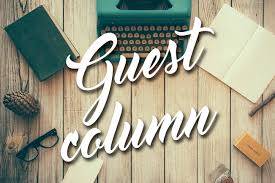by Jari Brenner
Orcas Island
When I wrote “What Does It Mean To Be A Human Being on Orcas Island? A Contemporary Cultural Perspective,” last winter, I knew that the work that a small group of us were doing was important, needed and necessary. We all knew that it was urgent, but recent events have shown us exactly how urgent this work is.
We can no longer sit complacently by and expect others to carry this initiative. Every one of us has a role here.
First, let’s talk about white culture. Most of us are of Caucasian skin color on this island, though our backgrounds and heritage vary widely. In short, we don’t all think alike, act alike, or have the same lived experience. I personally find it offensive when someone makes an assumption about me, and how I think, based solely on my skin color.
But what we do all share is privilege. We simply do not face the abuse and violence that people of color, particularly Black people face. Anti Black racism is an overriding theme in our culture. I wrote my Master’s thesis on this topic in 1991 (Institutional Abuse in Contemporary American Society, Stanford Department of Anthropology 1991) and called it institutional abuse. The enculturation starts in childhood through our parents, the traditional school system, churches, media, games, and advertising. It is inescapable.
So do we as people who happen to have white skin color need to feel guilty? No. We need to get busy.
Being a human being means to see, hear, feel, notice and be in community with all people, not just those who look like us. We have to actively unlearn the enculturation that each and every one of us carries. Yes, I said all of us. People of color in this society are also enculturated to marginalize themselves. Many, but not all, have done the work of unlearning this fallacy, and are raising their children to have pride in themselves, no matter what obstacles are thrown at them by the society itself.
But those of us who were born with the “preferred” color of skin, have not had a need to do this. We are blithely ignorant of the very real pain and danger that others face. Any obvious difference from the mainstream, be it gender, sexual preference, physical or mental disability, religion, age, or any weakness whatsoever, puts one at risk. And, of course, white people are included in all of those categories too.
The idea is not that only people of color face bigotry, but that intolerance must be eradicated throughout our society. However, those whose skin color targets them for the most abuse are in imminent danger and they must be heard. NOW.
We know that Black, Indigenous and those of Asian heritage, are currently being targeted in unprecedented numbers. Those of us who appear to be part of the White majority carry the privilege of being seen, listened to, and particularly if young, and male, respected.
That’s why we must join together in a community of love, to learn, understand, and protect our community members who are people of color from harm, both emotional and physical.
We do NOT have to hate ourselves to do this. We are all victims of an abusive society. We have had this vitriol fed to us, and it can be unlearned through the work of seeing it, releasing it, and learning new ways of being in community with each other. Hate and intolerance serves no one. When we lose tolerance and compassion for any one of us, even for ourselves, we all suffer.
Please look for opportunities to learn more about the upcoming educational talks and training on this topic. They will be posted throughout Island media.
And thank you for choosing love, not hate.



